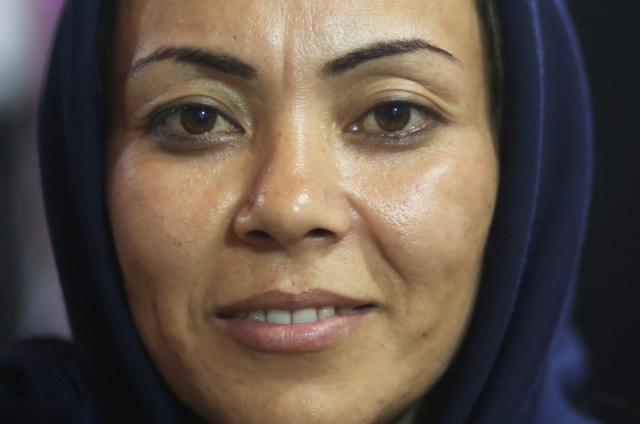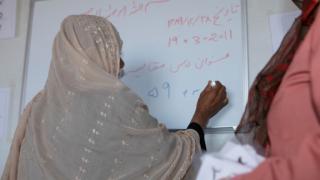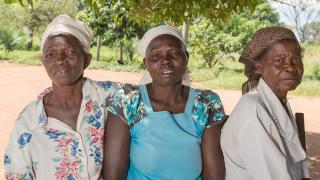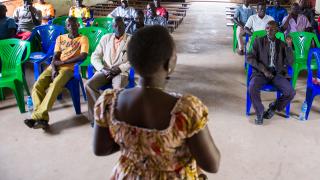Please Don’t Forget Afghanistan
For nearly four years, Latifa worked as Advocacy Coordinator in Afghanistan for Women for Women International. She left Kabul in August 2021 during the final days of the US/UK troop withdrawal and is currently a refugee living in London.
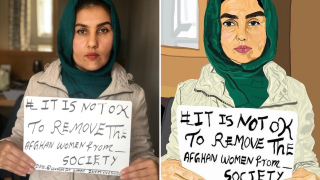
I remember the worst part about leaving Afghanistan. It wasn’t the fear I felt waiting all night at the gates of the airport in Kabul or seeing my little brother or father being beaten as we tried to get through the checkpoints, but this was very difficult. The hardest part was as the plane took off and I looked around and saw that it was filled with children and mothers and families and my heart broke for the country I was leaving behind. I couldn’t stop crying. What did Afghanistan do to deserve this?
I used to have a plan for my life. I studied Law at the University of Kabul, the first woman in my family to get a degree, and I worked as an Advocacy Coordinator for Women for Women International, helping women survivors of war rebuild their lives. I was so proud of my work. Now, I don’t know what my future holds. It’s strange that my life is completely in the hands of the UK Home Office. I have an offer of a job here, but I must wait for a work permit and a place to live outside of this hotel. I know that I am lucky though. I have peace, security, food and my family is safe. It is not the same for the people back home.
It’s so hard to speak to my relatives and hear that the only food they can afford is a small amount of bread. They tell me about the families who are starving, who only eat once a day, who are selling their belongings, who are selling their girls into marriage because they are desperate.
So, even though I am safe I will not forget them. Together with other Afghan women refugees, I’ve been to Westminster to talk to decision-makers and argue that the international community has a responsibility to do more. I am so grateful to the UK government for helping my family and for the kindness people have shown me here, but stopping aid to Afghanistan has meant an economic crisis and families are suffering. The international community must restart aid to Afghanistan so that people do not starve this winter. It is not the people’s fault that their government has changed so why must they pay the price?
I know that Women for Women International’s priority now is the acute health and well-being needs of women in Afghanistan. I feel sad that I cannot continue my work there, but I am determined to be a voice for marginalised women in Afghanistan and make sure the world does not forget them. That’s why I posted my picture on Instagram and I couldn’t believe it when I saw an artist painted a picture of my photo. I hope it does some good.
Sometimes London feels so much like Kabul because it is a busy, bustling city too and I forget I am a refugee. I felt excited when I first arrived here, after the trauma of leaving Afghanistan in August. I would spend hours walking around the city. I found this park called Russell Square Gardens where I would sit, sometimes feeling happy and other times dark and hopeless. This park has seen me at my best and worst since I left my country, it’s a very special place to me now.
keep reading
As we resume operations in Afghanistan, the country is facing a new emergency. International aid has been frozen and the country is on the brink of economic collapse: the banks have run out of cash, there is no money to pay salaries and not enough food for people.
Worldwide, 1 in 3 women worldwide has experienced physical and/or sexual violence in their lifetime. This number hasn’t changed in 10 years.
Accelerating gender equality requires breaking the silence on unacceptable norms. Women must have the tools to stand up for themselves, their sisters and their daughters. But women can’t do it alone – especially in some of the world's more conservative communities. Men and women working together is the only way to change the traditional and social norms that discriminate against women and restrict their freedoms.

